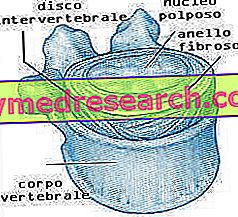Watch the video
X Watch the video on youtubeOats in the Diet
Oats are a source of slow-digesting carbohydrates, rich in fiber and therefore able to provide long-term energy without causing insulin spikes. In our country the dietary applications of oats are relatively recent, although this cereal has very ancient traditions behind it.

In Italy, until a few years ago, oats were destined mainly for the feeding of thoroughbreds, with four (horses) and two-legged (high level sportsmen and "maniacs" of physical form). Today, the benefits of oats have now reached the ears of the general public and its spread in food products is increasingly widespread. Traditional ingredient of muesli, it is now added to almost all dietary foods for breakfast.
In human nutrition the caryopsis is used, generally deprived of its fibrous (decorticated) and reduced in flour (grinding) or flakes (by pressing the beans, fresh or steam-cooked).
Oats and celiac disease
The toxicity of oats for the coel is still a subject of debate. In the past, in fact, it was excluded a priori from the celiac diet, while several studies depict it as relatively safe. In particular, if introduced pure, that is not contaminated by wheat, barley or rye proteins during processing, oats would not be harmful for the most part (99.4%) of celiacs.
Oats and human health: a precious ally against diabetes and cholesterol
The excellent nutritional characteristics of oats can already be guessed from the simple observation of food tables. Of all the cereals, it holds the record for the richest protein (12.6-14.9%) and fatty substances, including the essential linoleic acid. Also excellent is the content of soluble fibers, which make oats an ideal food to appease the appetite, regularize intestinal function and normalize body weight. It is therefore no coincidence that folk medicine describes oatmeal as a nourishing and strengthening food, especially suitable for children and convalescents.
ENERGY [100 grams of oats] | 389 Kcal |
1628.0 Kjoule | |
Carbohydrates | 66.27 g |
Grassi | 6.90 g |
Protein | 16.89 g |
| fibers | 10.6 |
| Cholesterol | 0 mg |
| Thiamine | 0.8 mg (51%) |
| folate | 56.0 mcg (14%) |
| Pantothenic acid | 1.3 mg (13%) |
| Manganese | 4.9 mg (246%) |
| Phosphorus | 523 mg (52%) |
| Magnesium | 177 mg (44%) |
| Copper | 0.6 mg (31%) |
| Iron | 4.7 mg (26%) |
| Zinc | 4.0 mg (26%) |
The benefits of oats are so striking that they have led the US Food and Drug Administration to authorize the claim that oats promote lowering cholesterol levels.
To accentuate its cholesterol-lowering effect, it is recommended to consume oat bran (40 grams per day, equivalent to about 6-8 g of fiber). This food, thanks to its very high capacity to attract water and the presence of many useful trace elements, quickly reduces the "harmful" cholesterol (LDL), without affecting the "good" cholesterol (HDL). Eating oats regularly is therefore a great way to protect our arteries from atherosclerosis.
An interesting note concerns the excellent biological value of its proteins. In particular, oats boast a good lysine content, clearly superior to other cereals. In wheat this nutrient is the limiting amino acid, that is that essential amino acid which, being contained in reduced quantities compared to the others, becomes limiting for protein synthesis. Oat is therefore an excellent food, nutritious and rebalancing, even for vegetarians.
The Β-glucans present in the soluble fiber also act positively against other metabolic pathologies typical of industrialized societies. The low glycemic index, for example, makes it a valuable food for diabetics, who can benefit from its stabilizing effect on glycemic levels. This characteristic is also important in the fight against excess kg, as it helps to control the intake of food by prolonging the sense of satiety after a meal.
Also noteworthy is the presence of avenin, an alkaloid concentrated in the bran and endowed with a toning, energetic and rebalancing effect. Oats also have diuretic and laxative properties (stimulates the lazy intestine), which contribute to making it a healthy choice at any time of the day.
Recipes
Soft oat sandwiches
Prepare delicious oatmeal sandwiches with your own hands? Nothing could be simpler, thanks to Alice's advice, the MypersonaltrainerTv personalcooker. Follow the video recipe:
Soft bread with oats
X Problems with video playback? Reload from YouTube Go to Video Page Go to Video Recipes Section Watch the video on youtubeSee all Recipes with Oats »



